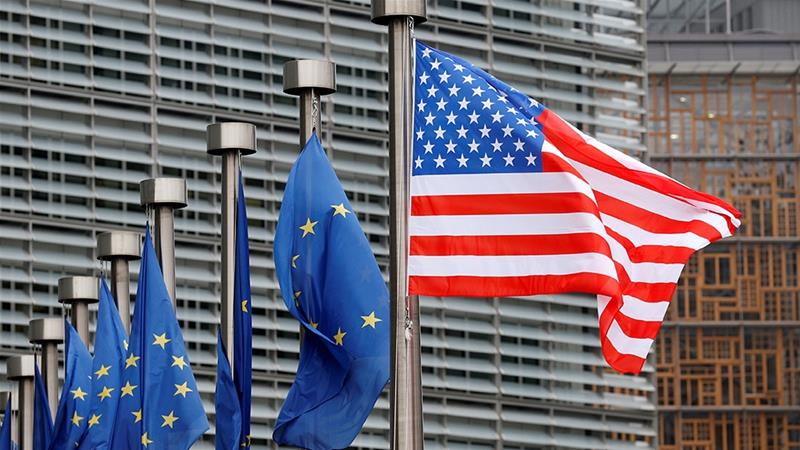The United States, the European Union and Japan on Tuesday proposed new global trade rules to curb subsidies they say are distorting the worldwide economy, with China their clear target.
A day before Chinese officials are due to sign the first phase of a trade deal with the US in Washington, Beijing is again the focus of criticism from its main trading partners.
The phase one US-China deal will lead to China buying more US products, but will not tackle hard issues such as subsidies.
After meeting in Washington, Japanese Economy Minister Hiroshi Kajiyama, US Trade Representative Robert Lighthizer, and new EU Trade Commissioner Phil Hogan said in a joint statement that existing World Trade Organization (WTO) rules were insufficient to tackle market distortions from subsidies.
The proposed rules are the outcome of two years of trilateral discussions, but are only a precursor to the hard work of convincing other WTO members, including China.
They also mark a note of harmony in US-EU relations, which have been strained by US tariffs and disputes over aircraft subsidies and EU auto exports.
During his first visit to Washington in his new role, Hogan will meet separately with Lighthizer, US Treasury Secretary Steven Mnuchin, US Commerce Secretary Wilbur Ross, US lawmakers, and officials from the International Monetary Fund, the EU delegation said.
The three partners intend to bring their proposals to the Geneva-based WTO, with as many countries involved as possible, even if not all the WTO’s 164 members are included.
“This would only make sense if the big subsidisers were on board,” an EU source said.
The EU last year hailed a breakthrough in talks with China on industrial subsidies, and it believes Beijing’s desire to keep the WTO afloat may make it more flexible.
Beijing has said it would be more ready to discuss industrial subsidies if talks also extended to agricultural subsidies prevalent in the west.
Read Also: Analysts Predict Rise In Inflation Rate To 12%
The WTO already bans any subsidies that are used to boost exports or to give an advantage to local goods over imported ones.
The three partners want to add four banned subsidy types: unlimited guarantees, subsidies to ailing enterprises without a restructuring plan, subsidies to firms unable to obtain long-term financing, and certain forms of debt forgiveness.
They would also seek to ban other large subsidies, such as those that create overcapacity, that prop up money-losing firms (called zombie enterprises), or subsidies that lower input prices unless the subsidising country can prove there are no negative effects.
The partners are also seeking to devise rules to end forced technology transfer and current WTO rules that allow countries such as China, South Korea, and Singapore to designate themselves as developing countries, which enjoy economic advantages.
SOURCE: REUTERS NEWS AGENCY

